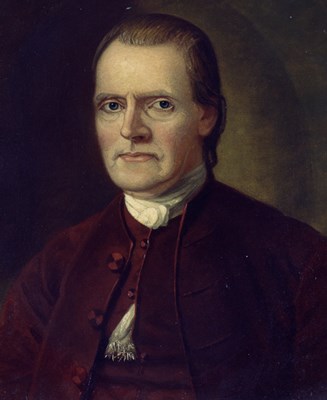
Thomas Hicks, after Ralph Earl, c. 1866 Independence National Historical Park Compromise! "That in the second branch of the legislature, each state shall have an equal vote." -Robert Yates' Secret Proceedings and Debates of the Convention Assembled at Philadelphia The Convention was not in session. The committee assigned to create a compromise over the issue of the relative voting power to be given the large and small states did meet. Roger Sherman had replaced Oliver Ellsworth, who was ill. Sherman, a consummate committee politician, and Benjamin Franklin, the celebrated negotiator, brought years of experience to the compromise process. The notes taken by committee member Robert Yates provide insight into the proceedings: "The grand committee met. Mr. Gerry was chosen chairman…By the proceedings in the convention they were so equally divided on the important question of representation in the two branches, that the idea of a conciliatory adjustment must have been in contemplation of the house in the appointment of this committee, but still how to affect this salutary purpose was the question. Many of the members, impressed with the utility of a general government, connected with it the indispensable necessity of a representation from the statesaccording to their numbers and wealth; while others, equally tenacious of the rights of the states, would admit of no other representation but such as was strictly federal, or in other words,equality of suffrage… Yates spoke to the committee members about his "attachment to the national government on federal principles." Following Yates' remarks, Franklin put forth a motion, it underwent some modification and the committee decided to submit the following report: That in the first branch of the legislature, each of the states now in the union, be allowed one member for every 40,000inhabitants, of the description reported in the seventh resolution of the committee of the whole house - That each state, not containing that number, shall be allowed one member. That all bills for raising or apportioning money, and for fixing salaries of the officers of government of the United States, shall originate in the first branch of the legislature, and shall not be altered or amended by the second branch; and that no money shall be drawn from the public treasury, but in pursuance of appropriations to be originated in the first branch. |
Last updated: February 26, 2015
